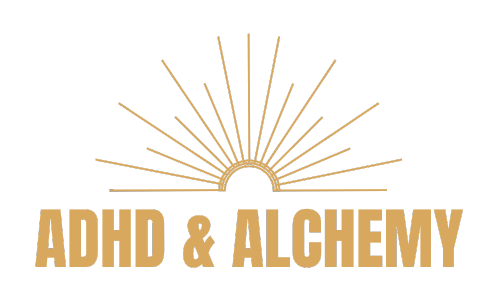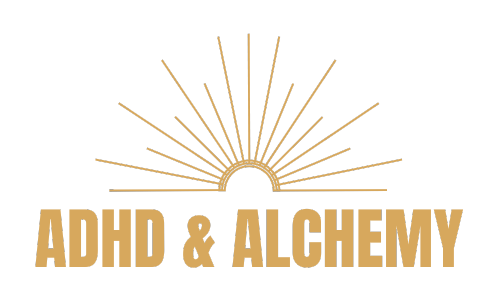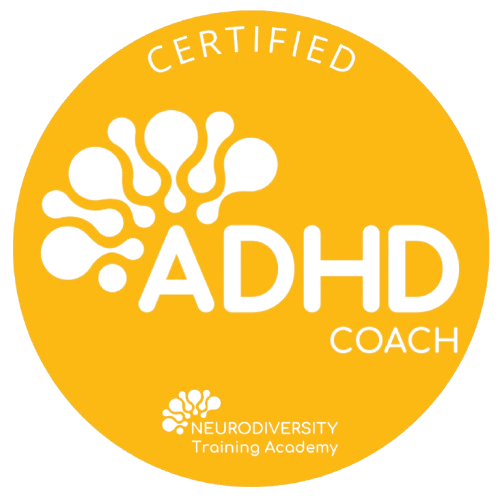The Surprising Reason ADHD Women Feel Everything So Intensely (And Why It's Actually Your Strength)
You might have been told you're "too sensitive" your entire life.
That you need to toughen up, calm down or stop being so emotional and if you haven’t heard this from someone else you’ll most probably have said them to yourself, questioning whether something is fundamentally wrong with you. I know I used to do this in the past.
But what if everything you thought about your emotional intensity is backwards?
The truth about ADHD emotional intensity isn't what most people think. It's not a character flaw, a weakness to overcome or evidence that you're broken.
Your heightened emotional responses aren't something to suppress or fix, they're actually evidence of a neurological advantage that helped our ancestors survive and thrive.
This revelation changes everything about how you understand yourself and your ADHD.
Instead of viewing your intense emotions as symptoms to manage, you can begin to recognise them as powerful tools that give you unique insights into the world around you.
The Evolutionary Gift Hidden in Your ADHD Brain
Your ADHD brain wasn't designed for nine to five routines, endless meetings, and rigid schedules. It evolved for a very different purpose, one where sensitivity and emotional responsiveness were vital survival mechanisms.
According to the hunter-gatherer theory of ADHD, many of the traits we now label as "symptoms" were actually strengths within the group. ADHD traits make for the best scouts, innovators and hunters.
Your emotional intensity served a vital purpose: It allowed you to pick up on subtle environmental cues that others missed, sense danger before it became obvious, and respond quickly to changing situations.
That ability to feel everything so deeply wasn't a bug in your system it was a feature.
Think about how your emotions work in your daily life. You might notice tension in a room that others completely miss. You feel deeply moved by art, music or stories in ways that seem disproportionate to others. You pick up on people's moods and energy shifts before they're even aware of them themselves.
These aren't signs of being "over the top" with your emotions. They're signs of a finely tuned emotional radar system that gives you access to information others simply don't have.
Why Your Brain Processes Emotions Differently
The ADHD brain processes emotion differently from neurotypical brains. That’s not an excuse… it’s neurology.
The Emotional Processing Difference
Your brain processes emotional information through different pathways than neurotypical brains. While others might experience emotions as gentle waves, your brain creates emotional tsunamis.
Which can then look like a total lack control when it’s actually because your neural networks amplify emotional signals rather than filter them out.
It serves it’s purpose though as it makes you incredibly empathetic… allows you to understand and connect with others on a profound level. It fuels your creativity, giving you access to emotional depths that spark innovation and artistic expression.
It also makes you an exceptional problem-solver when you care about the outcome, because your emotional investment drives you to find solutions others might overlook.
The Sensitivity Spectrum
Your emotional intensity exists on a spectrum that includes both challenging and remarkable aspects. On difficult days, you might feel overwhelmed by criticism, devastated by rejection, or frustrated by your own emotional responses. But this same sensitivity also allows you to experience joy more fully, appreciate beauty more deeply, and form more meaningful connections with others.
The key isn't to diminish your emotional responses—it's to understand them as valuable information about your environment and inner state. Your emotions are telling you important things about what matters to you, what aligns with your values, and what situations support or drain your energy.
How Emotional Intensity Becomes Your Strategic Advantage
This sensitivity lives on a spectrum. On tough days, it may look like RSD (Rejection Sensitivity Dysphoria), emotional reactivity, or deep frustration.
But it also allows you to feel joy, passion, and meaning more vividly than most.
Emotions are information. They help you track what matters, what aligns, and what drains you.
Enhanced Empathy and Connection
You feel things others don’t, and you notice things others miss. This makes you deeply connected and able to support others in powerful ways. It’s a strength in leadership, friendship, and community-building.
Creative Problem-Solving Through Emotional Investment
You care, and that caring becomes fuel. You think differently because you feel deeply, and it often leads to solutions others never see coming. Your emotional connection to what matters drives action.
Reframing the "Too Much" Narrative
If you've spent years believing you're "too sensitive" or "too emotional," it's time to challenge that narrative. The problem isn't that you feel too much, the problem is that you've been living in environments and systems that weren't designed to appreciate your emotional depth.
Here’s a reframe for you: Instead of being "too sensitive," you're highly perceptive. Instead of being "too emotional," you're deeply aware of your feelings and use them to guide you.
Instead of being "too reactive," you're responsive to important information that others might miss.
This shift in perspective doesn't mean your emotional intensity never creates challenges. It means those challenges are worth navigating because of the incredible gifts that come with your unique wiring.
Finding Your Emotional Sweet Spot
Working with your intensity means knowing what supports you. You might need:
More recovery time between emotional events
Work that aligns with your values
Relationships that respect your depth
It’s not about avoiding challenges, it’s about creating environments where you thrive.
Practical Ways to Honor Your Emotional Intensity
Understanding that your emotional intensity is a strength is one thing, learning to work with it effectively is another. Here are some practical approaches that honor your ADHD emotional wiring while helping you navigate daily challenges.
Creating Emotional Safety Nets
Give your feelings a place to land. That might be a journal, a voice note, a safe friend or a creative outlet.
You don’t have to bottle it all up.
Recognising Emotional Information
Ask yourself: What are these emotions telling me?
Are they telling you about a boundary that's been crossed? A value that's being honored or violated? Or very importantly a need that requires attention?
Getting curious turns your feelings into guides, not roadblocks.
Building a Life That Works with Your Wiring
The ultimate goal is to build a life that works with your unique ADHD wiring rather than against it.
This involves making intentional choices about your environment, relationships and activities that honor your emotional needs while leveraging your strengths.
Choosing Supportive Environments
Your emotional sensitivity thrives in certain environments and struggles in others. You might find that open, flexible workspaces feel overwhelming while cosy, controlled environments help you focus. You might discover that large groups drain your energy while intimate gatherings energise you.
Pay attention to how different environments affect your emotional state.
Cultivating Understanding Relationships
Surrounding yourself with people who understand and appreciate your emotional depth makes an enormous difference in how you experience your ADHD.
This doesn't mean everyone in your life needs to have ADHD or share your emotional intensity.
It means building relationships with people who respect your emotional experience.
Your Emotional Intensity as Intuition
When something feels really right or really wrong… listen.
Your emotional reactions often know before your logic catches up. That’s not impulsivity.
That’s intuition.
Trusting your emotional compass doesn’t mean acting on every feeling. It means respecting your inner guidance and using it to inform your choices.
Embracing Your Full Emotional Spectrum
The world doesn’t need less of your intensity. It needs people who notice, who care and who persist.
Reframing your emotional experience isn’t about fixing yourself. It’s about seeing the value in how you feel and learning to live from that place of power.
The shift from shame to strength doesn’t happen overnight but it begins with self-awareness and it grows every time you choose to honour your sensitivity instead of hiding it.
This is your strength.
Let it guide you.
Created with ©systeme.io



